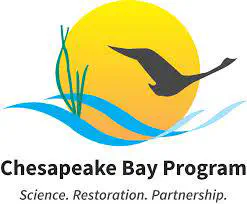Using Carbon to Achieve Chesapeake Bay (and Watershed) Water Quality Goals and Climate Resiliency: The Science, Gaps, Implementation Activities and Opportunities
 Image credit: Chesapeake Bay Program
Image credit: Chesapeake Bay ProgramAbstract
Carolyn Voter was a Urban Landscapes (Stormwater) Panelist at this event
The Scientific and Technical Advisory Committee (STAC) hosted a 2-day workshop to bring together leading experts to elevate the use of biochar in practice Bay-wide by evaluating and translating current research for integration into current Chesapeake Bay protocols. Concurrent with rapid global research and biochar-focused publications, US research grew with demonstration projects in the Chesapeake Bay region conducted by a multidisciplinary team of researchers, state and federal partners, and non-profits. These projects show significant environmental benefits including water quality improvement (reduction of nutrients/toxics), improved agricultural and urban soil health, and significant increases in soil infiltration capacity and hydrology. They have greatly advanced the empirical evidence supporting biochar protocols, standards, specifications, and crediting which are lacking in the Bay region. The purpose of this workshop was to accelerate the water quality efforts via the benefits biochar provides to more closely meet 2025 requirements and plan forward for water quality policies and carbon negative opportunities considered in the forthcoming 2025-2035 Climate TMDL.